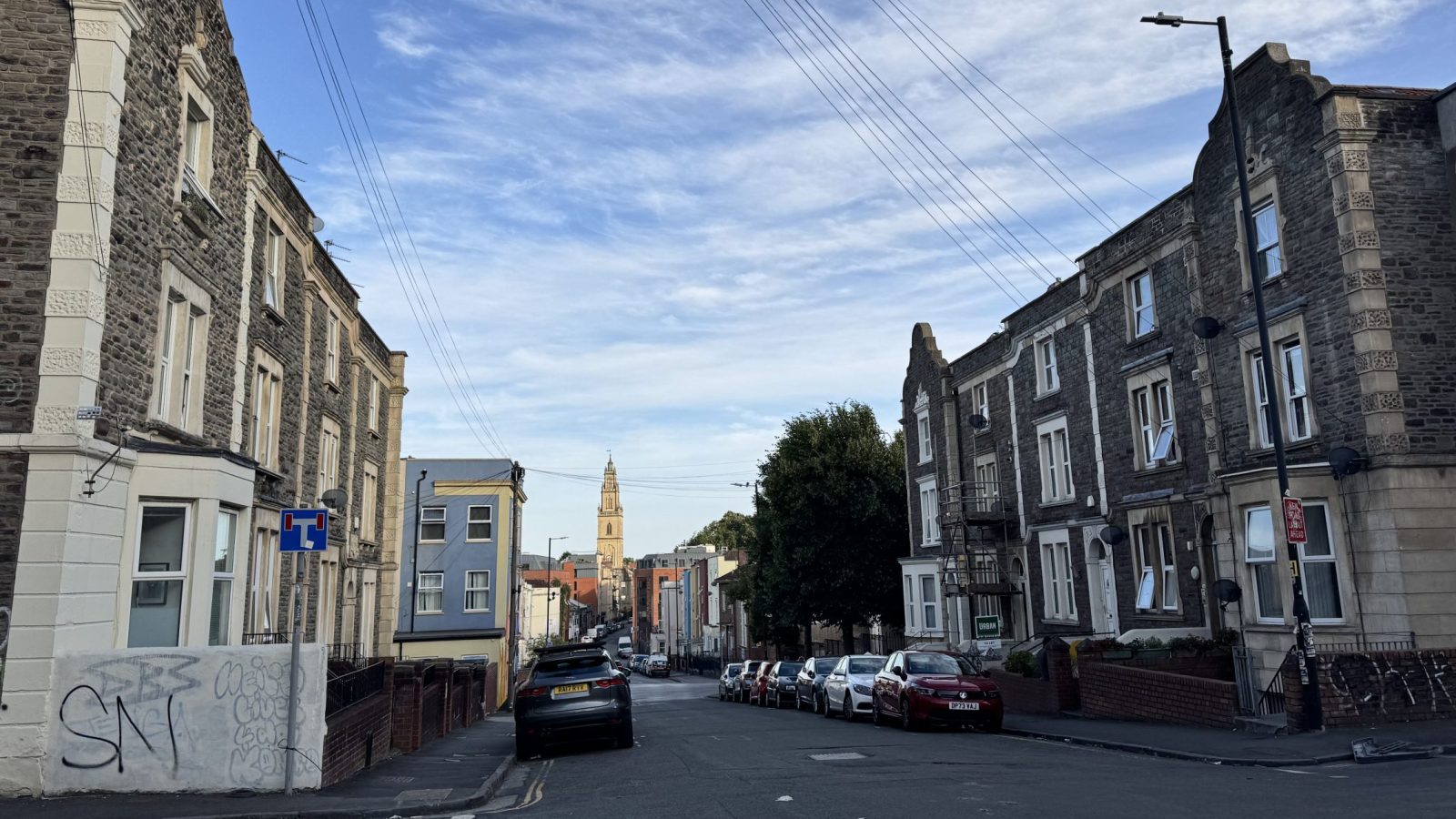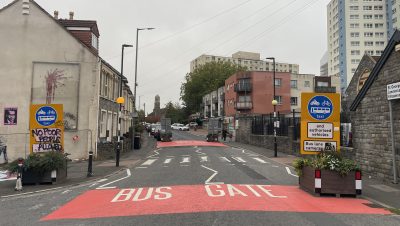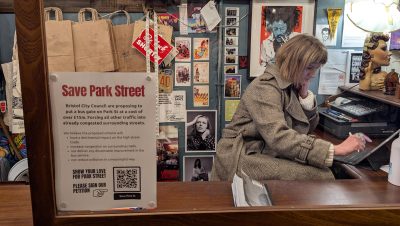Features / Housing
Tenants feel like ‘prisoners’
“We’re a network of companies that change lives by creating, managing, and supporting thriving communities across the UK,” say Places for People (PfP), a housing association commissioned by Bristol City Council.
On their website they continue and say “creating social value for customers and communities is at the heart of our approach.”
But some of their tenants say this couldn’t be further from the truth.
is needed now More than ever
Since 2023, PfP residents in St Paul’s have been fighting to prevent work that they say they weren’t consulted about, is “open to abuse”, a design that is both flawed and inappropriate, and has left them feeling like “prisoners” in their own homes.
The terrace houses are split into flats, with two or three flats at most.
One-by-one, each house in the area has been fitted with a new door and intercom system, something that “nobody wants” and many have objected to.
PfP held a consultation in the Malcolm X Centre, and a coffee morning at Docklands Community Centre, in 2023 and say they placed information in all communal areas informing customers about what was planned and how they could get more information.
But some residents dispute PfP’s version of events and say that the Docklands coffee morning was exclusively to discuss upgrades to kitchens and bathrooms, with no mention of new doors.
As for the other meeting at the Malcolm X Centre, many residents say they had no idea it was happening. Under the Landlord and Tenant Act (1985), landlords are required to properly consult.
One resident, Emma Reynolds, says she only became aware of the meeting after the fact when one of her friends (who wishes to stay anonymous) stumbled upon it and reported seeing only a handful of tenants.
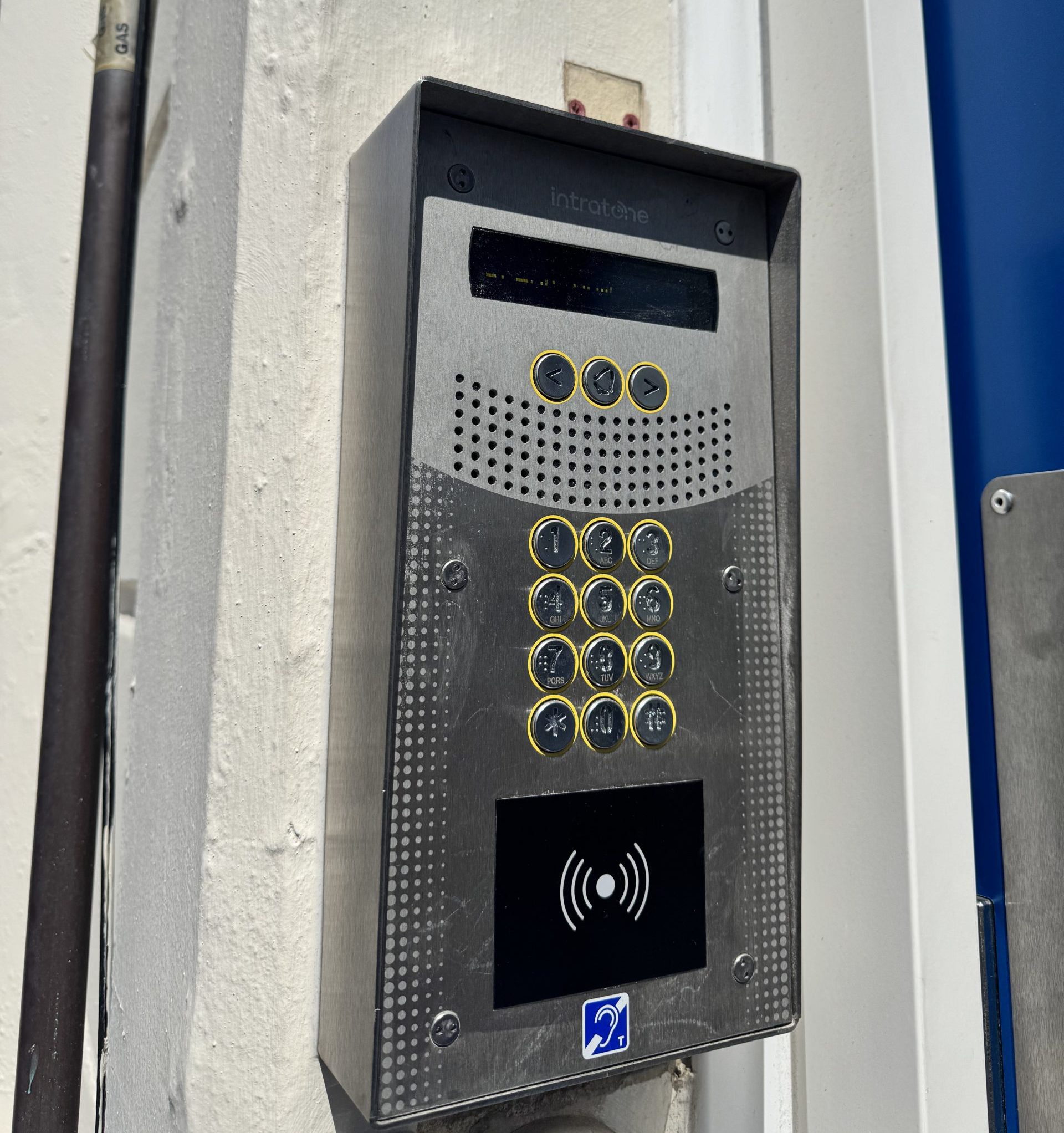
Visitors must scroll through the flat numbers on the screen but in the hard light it’s difficult to read – photo: Hannah Massoudi
Residents now no longer have key access to their homes and have to use electronic fobs to enter and apps to let visitors enter.
Postal workers are given codes to deliver to the properties with new doors, that also no longer have letterboxes, so they have to enter the property and leave whatever it is outside the relevant flat or in the hallway.
Repair and maintenance workers who are subcontracted by PfP are also given a code.
A code that at one point last year – as discovered by the tenants – was the same for an untold number of houses in the area.
Once flagged to PfP it was changed. But tenants are understandably concerned.
Concerned that a code, unlike that of a material object like a key, could easily be acquired and retained, as one resident puts it “by standing behind someone and watching them” put it in.
Any third party who is given the code by PfP subjected to a DBS check, but tenants are concerned that once someone has it, they can enter the property whenever they like to carry out whatever nefarious activities they please.
Some describe scenarios in which a code could simply be given away by mistake, a worker accidentally letting slip the code to a friend or being overheard by someone nearby.
There are also rumours, shared by several of the residents, that a former subcontracted worker with a criminal record bypassed checks.
Many are concerned that this could put women, those who are vulnerable, those who have experienced harassment and stalking and those who have experienced domestic violence at risk.
Widely recognised as an area that struggles with crime and a perceived lack of police presence, the new massive windows on the doors also don’t feel safe to many living there.
In some cases residents have put up screens to give themselves some semblance of privacy: one of the resident, Tina Brown, was able to get PfP to install them for her.
Meanwhile, one of Emma’s elderly neighbours (who wished to stay anonymous) told her he received a phone call from PfP to flag that they had noticed him “not answering (his) door to visitors.”
He said the call spooked him and made him feel like he was being “monitored”.
PfP has confirmed that the system can record who is entering a block by logging the time and date a fob is used, which flats are granting access, and which trades or services are entering the block using their unique code.
Emma shares her neighbour’s concerns about this and says she feels angry and violated that her and other tenants were not informed. She has raised her concerns with the Information Commissioner’s Office (ICO).
PfP told Bristol24/7 that: “This is an improvement on previously sharing keys and reduces the number of people entering the building.
“This provides increased security and means a restricted number of people can, if needed, know who has accessed the building.
“This would only be done in circumstances such as a police investigation and would adhere to Data Protection Legislation.”
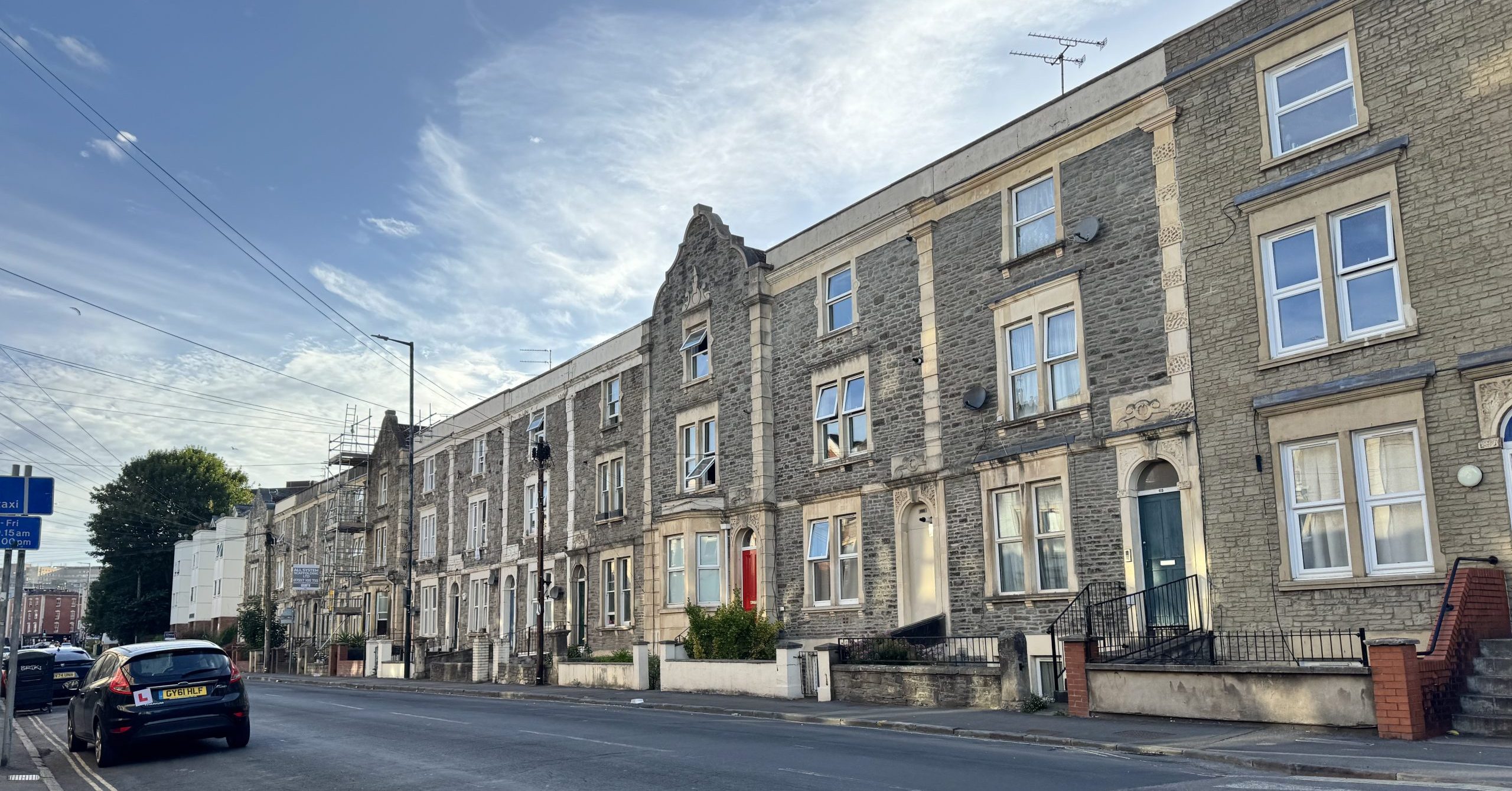
Some of the properties in St Paul’s are grade II and many residents think the new doors don’t fit in with the historic features – photo: Hannah Massoudi
When a visitor comes by and uses the intercom, they come face-to-face with a system that has bamboozled many, including councillor Abdul Malik who as has heard endlessly about Places for People.
Many of the houses in the area are split into flats that are labelled alphabetically: A, B, C and so on.
Yet, using the new intercom systems PfP have labelled those flats by numbers, meaning residents don’t always get their post, which in some cases can contain important hospital appointments or bills.
Confusing yes, but worse still this hasn’t actually been registered with Royal Mail – only the owners (Bristol City Council) of the properties can do this.
So in a worst-case scenario come true, when Emma rang an ambulance to attend to her friend who had collapsed with a seizure in her flat, having given the address as is registered with Royal Mail and not what PfP relabelled them, the ambulance had to be directed by a neighbour after they couldn’t work out which property to go.
Bristol City Council’s Street Naming and Numbering team must receive a change request from PfP to update the change onto Royal Mail,
But they have confirmed that they are”not aware of any applications to amend the official addresses for properties.”
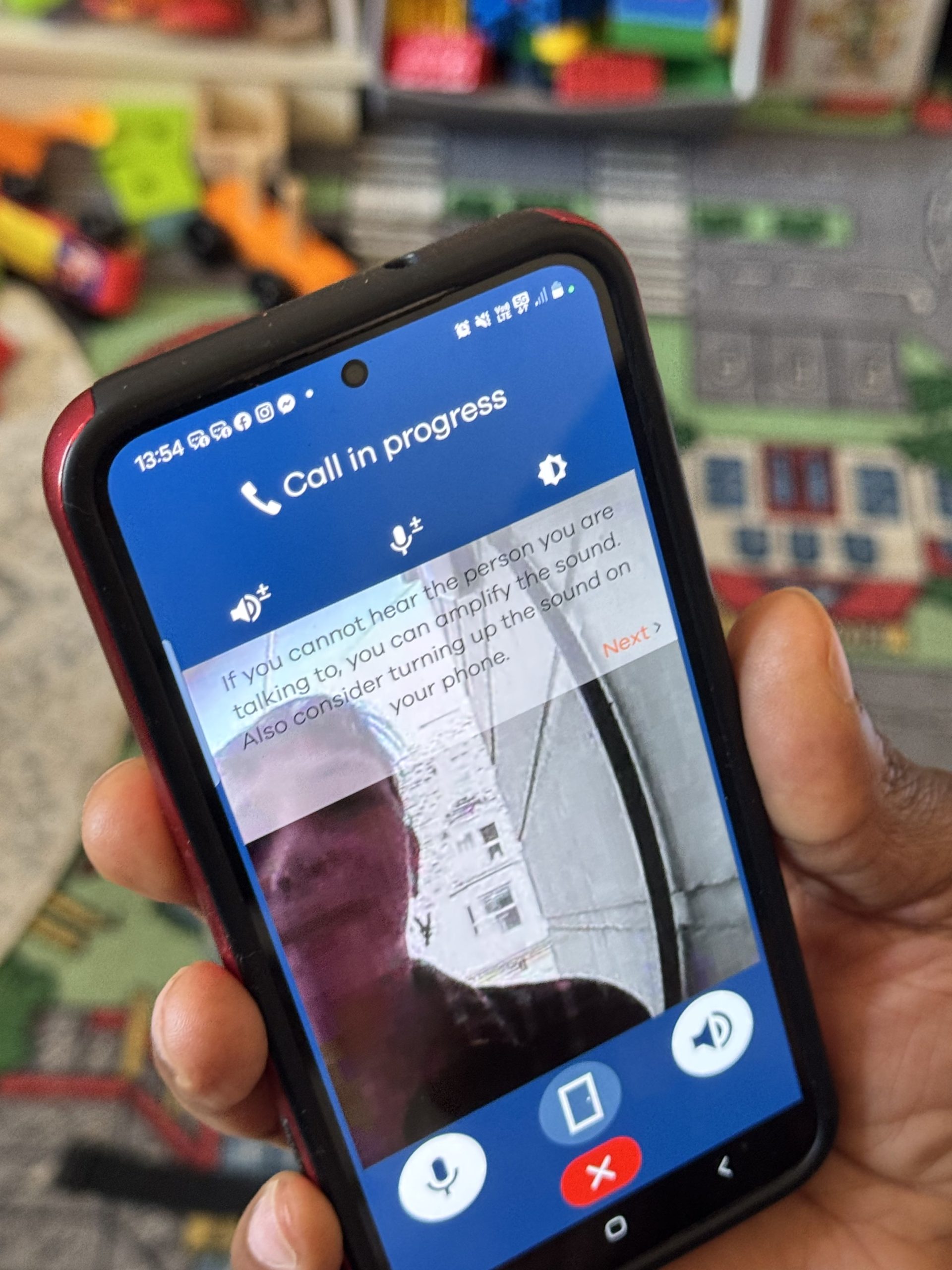
This screen should pop up immediately when visitors buzz the intercom, but sometimes it doesn’t at all – photo: Hannah Massoudi
And at the base level, according to residents the intercoms also just don’t work properly.
When the intercom is rung, it should come through to the allocated phone(s) and ring, usually four times.
But the signal doesn’t always work, particularly in poor weather conditions, and the call fails.
Emma reported this to PfP and said she was told that due to their location that signal shouldn’t be an issue.
When the call does go through sometimes a screen showing who is at the door pops up on their phone. However, sometimes it doesn’t and sometimes the words coming through are so distorted, it sounds like the caller is “underwater”.
One resident, who wished to remain anonymous, is 80-years-old and cannot work out how to speak through the app to visitors and refrains from using it entirely, instead choosing to look out of his window to check who is there.
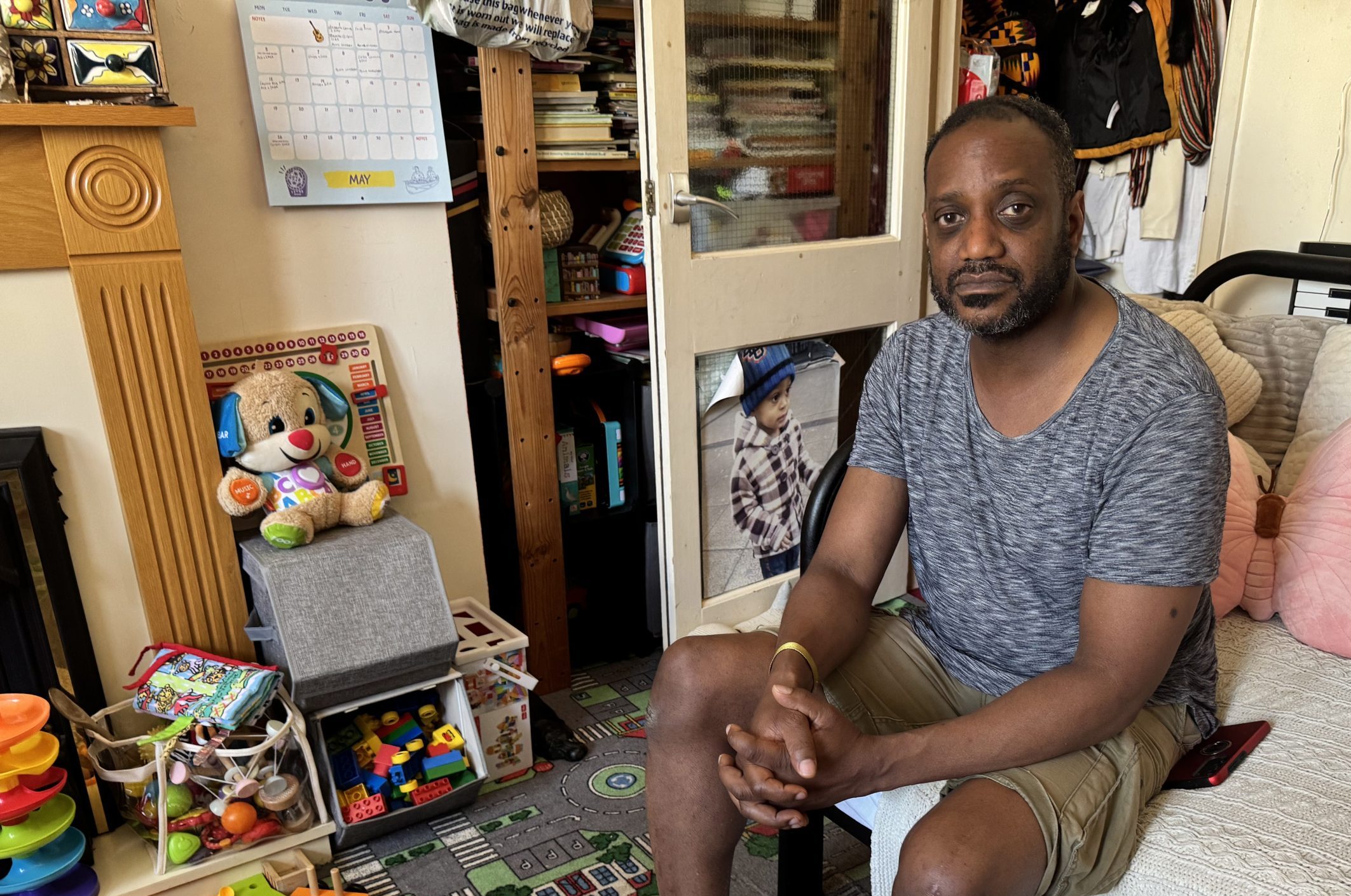
Julius has lived in his flat for 27 years – photo: Hannah Massoudi
54-year-old Julius, has lived in his flat for 27 years.
He recalls receiving a letter about the Docklands coffee morning but wasn’t able to attend because he and his family were out of town at the time of the drop-in.
He says the next thing he knew, a letter arrived with approximately one day of notice telling him of the planned works to the door.
He says that the fact that the Docklands coffee morning was not mandatory and did not allude to changes that needed a consultation as “ridiculous.”
Immediately, Julius got on the phone to PfP about the new intercom and door and was convinced it would be a progressive feature, but he notes there was no mention of the lack of letterbox.
To make matters worse once the work began, the front door to the building was unlockable.
While each flat in the property has their own door, Julius’s family felt incredibly unsafe and temporarily sought refuge with his fiancé’s mother.
Infuriated he followed up with phone calls and emails.
It was about a month-and-a-half before the family were able to move back in.
The pair now had to get to grips with the app which, unlike a Ring doorbell which the pair are fans of, “just doesn’t work”.
Julius says: “I’m talking to someone and they’re like, oh, and I’m like, hello, who are you? Who do you want? And then it cuts off.”
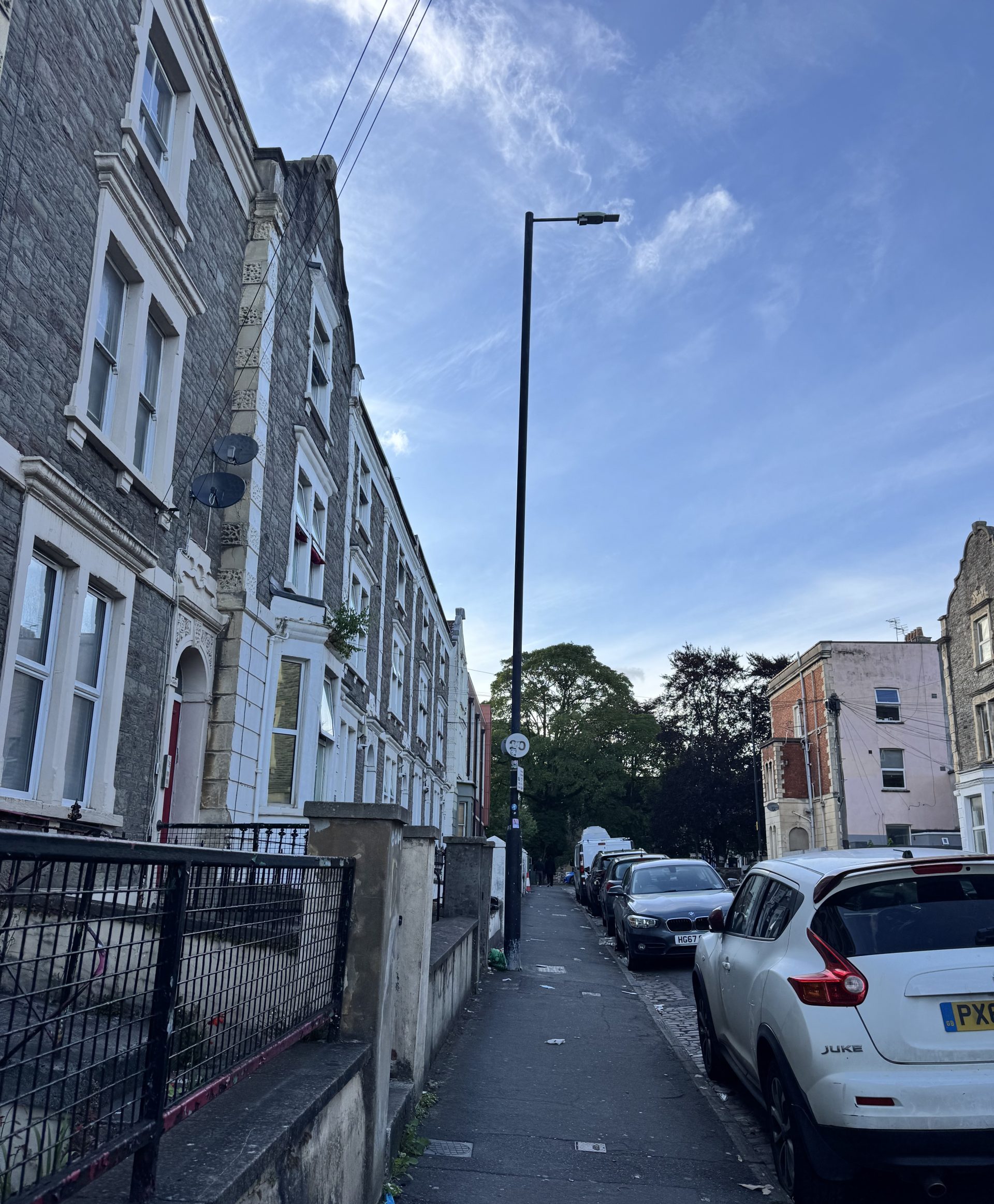
The terraced houses are usually two floors with a flat on each – photo: Hannah Massoudi
But the new electromagnetic doors were to continue to not just be a pain and inconvenience – running electricity costs – but also harmful.
Julius says his now three-year-old daughter burned her hand from touching the door that was overheating.
When asked about this, PfP about this they said they had received no report of an injured child.
But an email Julius showed me, addressed to PfP in October 2024, clearly shows him reporting the incident.
Eventually they came out and fixed the issue by rewiring the door and the fuse box.
Several of the tenants have also reported exposed live wires to the housing association.
Julius’ family have attempted to house swap to somewhere more suitable but say the mislabelling of the flats has stopped them doing so.
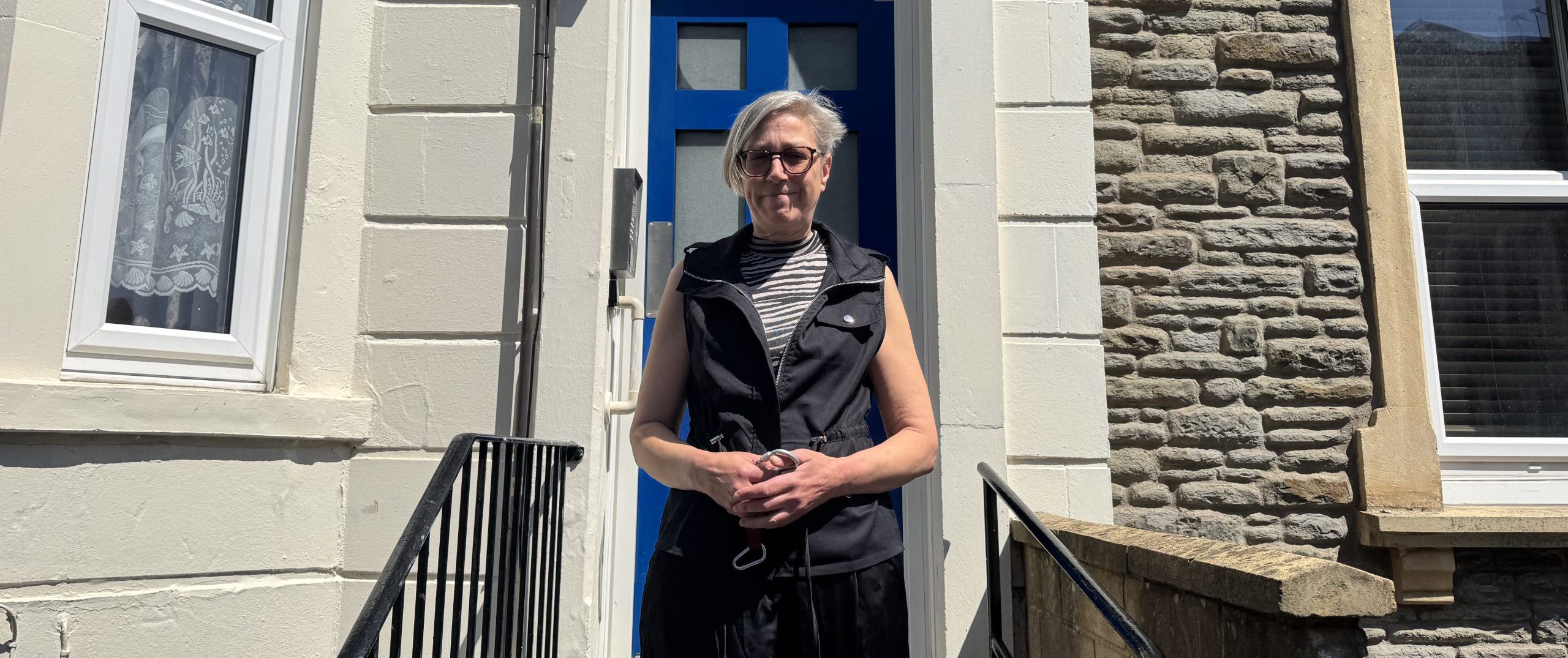
“They did not really consult people as to what they needed,” Tina Brown says – photo: Hannah Massoudi
Tina Brown thought the new door was exclusive to her property after waiting for more than a year for PfP to fix their broken door, she says.
She mentions being told by PfP that the consultation letters were delivered by hand, but she disputes this and says any request of evidence for this has been ignored.
Tina, who moved into the property 25-years-ago, says it wasn’t until the week before the fitting that she became aware that the intercom would also have to be linked to a mobile phone.
“My baseline on that is that an intercom comes with a house, it doesn’t come with a person.”
Tina is weary of dependency on phones and their addictive nature and is keen to be as detached from them as possible. So, in an attempt to detach, she purchased a spare phone for the intercom app to be installed on.
But this has its drawbacks and she says she is “sick of having to charge the thing up”.
In addition, unlike a doorbell affixed to the house, the phone’s ringing is hard to hear above the noise of regular tasks like vacuuming.
Angered by the lack of the options and information, she returned to PfP to say that it the new system wasn’t suitable for them and that it only works for blocks of flats.
Her eldest son, who is 25-years-old, has contacted the team multiple times to air his frustration and ask for a code of their own.
He lays out a scenario: “I’m locked out of my house with no phone and key, I can go down to the locksmith. What am I doing now in that emergency scenario?
“I can’t call Places for People if I don’t have my fucking phone.
“I can’t go down to the lock smith and get a new key cut.”
But he says that they haven’t responded.
One thing they have been able to have a two-way dialogue about is the glass panels.
Tina says she’s never worried about her safety in the property before but that these glass panels have made her feel really vulnerable.
“If I’m followed at night, my light goes on and everyone can see I’m in there.
“It’s just a gross invasion of our privacy,” she adds.
Their solution was to add in opaque panels to the windows.
Ultimately, she says: “They did not really consult people as to what they needed.”
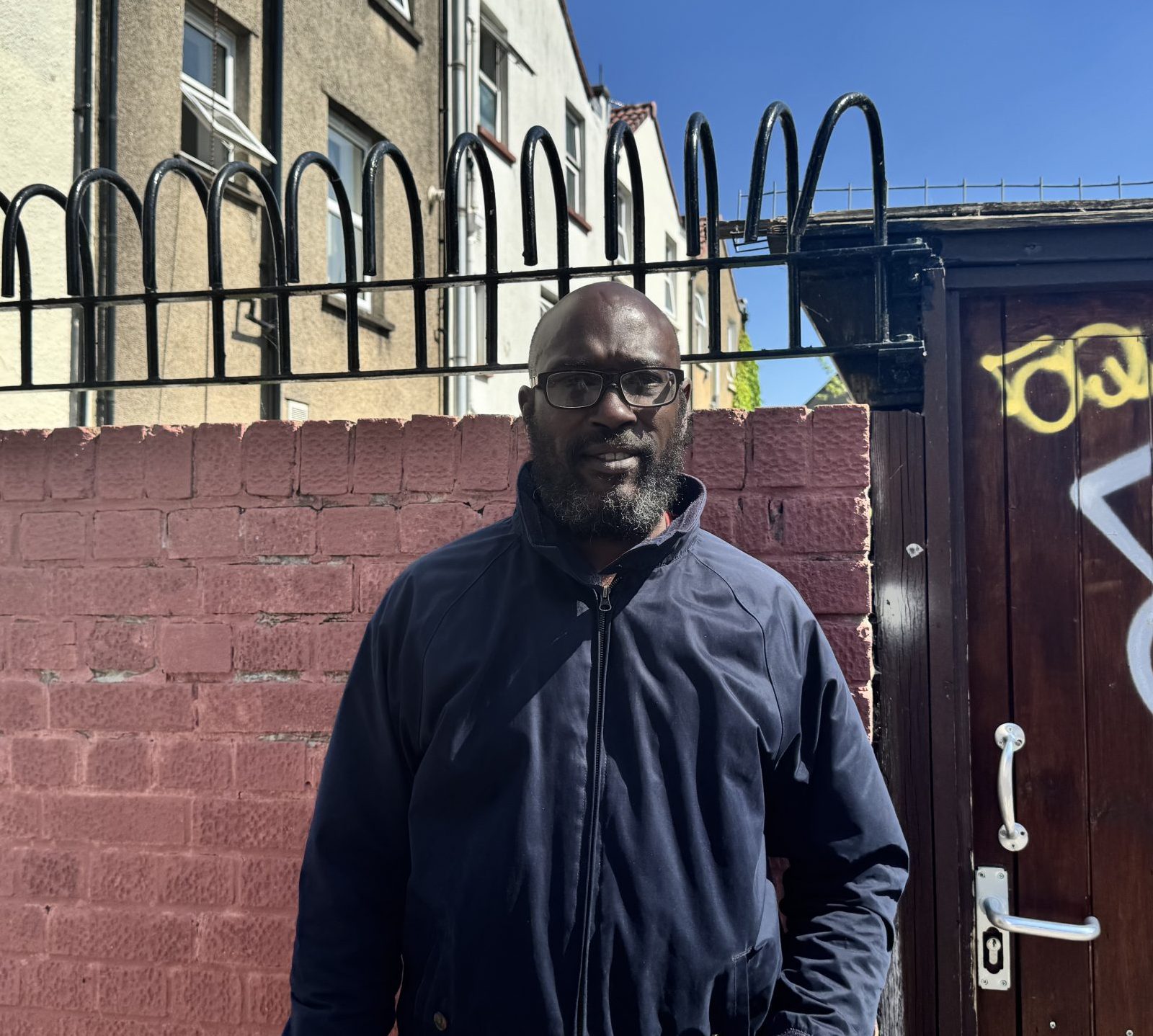
Trevor White never had any complaints about the housing association until the upgrades started – photo: Hannah Massoudi
Not everyone has had the new door and intercom systems installed but problems have persisted in other ways, often how tenants have been treated and how that made them feel.
Trevor White never had any complaints about the housing association until the upgrades started.
“It was a nightmare,” he says.
Soon after the upgrades started all communication began to break down between Trevor and PfP.
He describes being labelled as a “threat”, having his mental health needs and requests for a basic level of “professionalism” ignored, and feeling completely disregarded, disrespected and discriminated against.
He remembers clearly the event that started it all, the Docklands coffee morning. While attending the event, Trevor decided to take a step back from the goings on, taking his time to silently take in his surroundings.
Trevor says that, in response to his silent observation, some members of staff said he was intimidating them and described him as a “threat”.
From then on out he has felt like this has been held against him, detailing repeated unauthorised entry into his property – a violation of his dignity and safety, that made him feel like the house was not his home.
In one incident he says subcontracted scaffolders jumped over his neighbour’s fence to enter his garden and erect scaffolding to start the upgrades.
In another incident, work was being carried out in another part of the house and while he and his partner were cooking in the kitchen, a manager let themselves into the property unannounced.
“I’m thinking, what the fuck are you doing? It’s massively disrespectful.
“You can do whatever work you want to do. I ain’t got a problem with you doing the work.
“But you have to have a level of professionalism. You have to have a regard for the people that live in the house.
“No, you’re just completely disregarded and disrespected.”
When Trevor talks about being disregarded, he’s referring to long-term mental health struggles that he raised to PfP to take into consideration, but so far have made no difference in how they conduct themselves around him.
He goes one step further to say that PfP’s behaviour is systemic disregard based on discrimination.
Describing the mess that he says is left outside after workers have left: “They might pick up some of the bigger bits of waste, but they don’t even sweep up.
Probing what is going on in their minds when this happens, he asks:”Is it because of the tenants or is it because this is St Paul’s? You don’t really have to do nothing? The place is dirty anyway.”
**************************
Read next: ‘These are not just places for people, they are homes for humans’
**************************
Emma Reynolds raises similar issues and has made it clear that by proceeding with the new intercom and door, it has been at the expense of her health.
She is a long-term migraine suffer who often has migraines that leave her in pain for days.
Many factors can make this worse such as stress, sensory stimuli like bright lights or phones and loud noises, all of which have occurred over the process of implementing the doors and intercoms.
But about three weeks ago, PfP listened and agreed to pause the works, she says she has seen a massive improvement in her health.
She also suffers with post-traumatic stress disorder and while she has an intercom, she doesn’t have a new door yet.
The thought of people being able to enter the property and pass her on a stairwell barely big enough for one person, fills her with fear and discomfort.
Emma has also had issues with the upgrades but she says the code is the “worst part of all of this.
“We all feel like we’re prisoners, but I haven’t done anything, you know?”
After barely managing to keep her emotions down during our conversation, they begin to overwhelm her and tears start to overflow: “I just feel like my basic rights are being stripped.”

Councillor Abdul Malik says the residents have been “brave” – photo:
While I manage to speak to half a dozen residents in one afternoon, their local councillor Abdul Malik has spoken to many more over his time representing St Paul’s and been told of the same issues again and again.
“The residents have gone through a very, very difficult time in the last year with the front door project and the intercom,” says Abdul.
“The local community feel that they’re not listening,” he says, and despite contacting PfP on behalf of residents he says says generally its “really difficult to get a response.”
The process should be a lot simpler he stresses, “these are people that might not necessarily be able to write such long emails and communicate their needs”.
Some of the problems are really easy to solve, but he says PfP are making it unnecessarily complex.
Recognising the strength of the residents, he says they are brave:”They choose not to protest. They’re doing this by trying to get in touch with Places for People.
“They write it to them. They’re using the mechanisms of democracy.”
Putting it bluntly, he says: “It’s just really, really unfortunate that Places for People are treating them like second class citizens.”
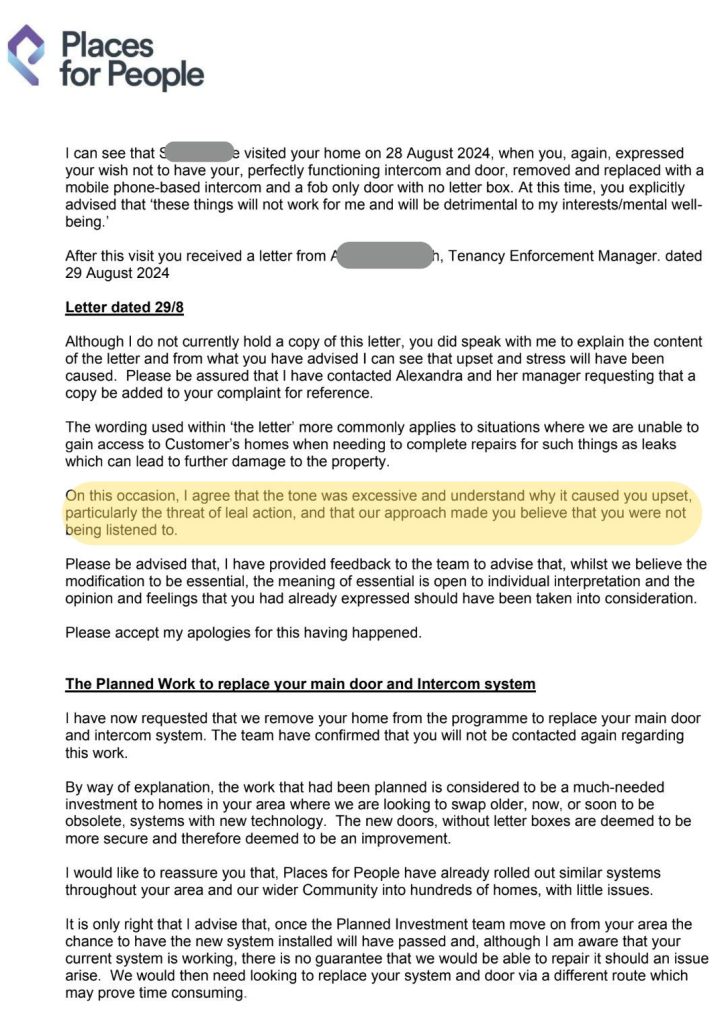
Interestingly one resident, Rod Pratt, was removed from the installation programme.
He made complaints prior to installation and, in a letter sent from PfP on October 19, 2024, was awarded £100 compensation for “time taken and distress and inconvenience”.
However, they have now decided to go ahead with the door and intercom installation regardless.
“I’m trying to not let it affect me,” Rod says. “If they change the door it’s not the end of the world, but I’ve been totally against it.
“I’ve been told by the people who’ve got it installed that it doesn’t work and its open to abuse.”
Not even the postmen want it, according to what Rod’s heard.
But PfP have not relented.
Many of the residents have lived in their property for decades, and none of them have been as riled up and angry as they are right now, not simply because things aren’t working but because of how this new system has unfolded and continues to be handled.
They have fought these changes every step of the way but, feeling completely dismissed, have escalated their complaints to the Housing Ombudsman and the ICO.
The possibility of the situation being remedied, and residents and PfP reaching an amicable agreement, is looking unlikely.
It appears the relationship has been eroded beyond repair and that residents no longer have faith that their housing association will do right by them.

Rod Pratt has lived in the property for 20 years – photo: Hannah Massoudi
A spokesperson for Places for People (PfP) said: “We have invested significantly in Customers’ homes in St Paul’s to improve communal safety, lighting and secure entry systems.
“To date, we have installed new systems across 69 sites in the Bristol area covering 227 homes.
“We are pleased to say these upgrades have been welcomed by the vast majority of customers and since installation, we have seen a reduction in the number of reports of anti-social behaviour, which was a key concern of our customers.
“Ahead of the works, we wrote to all customers, held two information days with the contractors – one in the Docklands and another at the Malcolm X Centre – and placed information in all communal areas informing customers about what was planned and how they could get more information.
“We understand that some customers weren’t aware of this communication, and we are reviewing this for future projects.
“We’re also aware that a small number of customers have experienced technical issues with their intercoms and we encourage anyone who has any issues moving forwards to get in touch so we can resolve them promptly.
“Similarly, we are aware that there has been some confusion by Royal Mail and the intercom numbering system.
“We have addressed this with Royal Mail directly and provided them with a dedicated access code to ensure deliveries reach the correct addresses, instead of leaving them in the communal area, where the old letterboxes were.
“Unfortunately, we recently had to pause completion of the improvement investments because of behaviour which left members of our team feeling intimidated, and we are working to seek a way forward.
“The safety of our customers and colleagues is paramount, but we remain committed to finishing the works to provide increased security and a more secure living environment to all our customers.”
Main photo: Hannah Massoudi
Read next:
 Our newsletters emailed directly to you
Our newsletters emailed directly to you